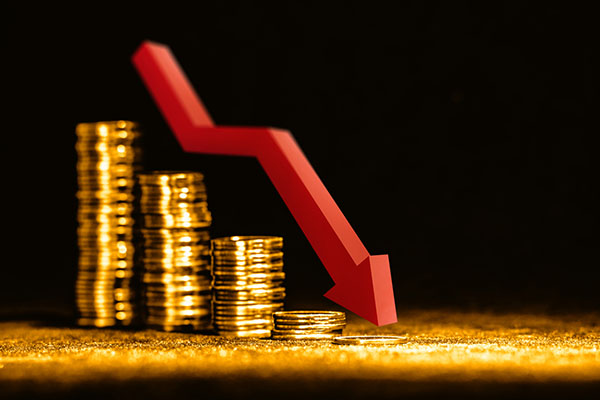Why UK dividends have slumped so far in 2025
Kyle Caldwell runs through the key data from the latest analysis of the state of play for UK dividends.
28th April 2025 11:01
by Kyle Caldwell from interactive investor

UK dividend payments fell 4.6% in the first three months of 2025 with cuts from three income heavyweights to blame.
Cuts from Vodafone (LSE:VOD), Burberry (LSE:BRBY) and Bellway (LSE:BWY) knocked five percentage points off the total, masking better growth elsewhere, according to the latest dividend monitor report from financial services company Computershare.
Invest with ii: What is a Managed ISA? | Open a Managed ISA | Transfer an ISA
In addition, companies were less generous in paying special dividends, which also contributed to the yearly decline versus the first three months of 2024. Special dividends are made when companies have excess cash and are therefore in a position to pay a one-off, larger-than-normal dividend. Dividends totalled £14 billion.
Share buybacks, an increasing trend over the past couple of years, also played a role. As companies repurchase their own stock, there are fewer shares in circulation. Therefore, total dividends can comparatively be less even when dividends are increased. The report notes that Shell (LSE:SHEL) paid its dividend on 6% fewer shares than a year ago, more than enough to offset the 4% increase in its per-share payout.
On an underlying basis, which strips out special payments, dividends came in 0.2% lower year-on-year, totalling £13.6 billion.
However, despite the declines, Computershare painted a positive picture, pointing out that underlying dividend growth was 2.7 percentage points better than expectations. The report also highlights encouraging growth from a number of key sectors, including healthcare, food and industrials, as well as the leisure sector.
- Sign up to our free newsletter for share, fund and trust ideas, and the latest news and analysis
- Ian Cowie: four ways to tap into a potential trade war winner
The report says: “On the face of it, the 4.6% headline decline compared to Q1 2024 looks disappointing, but it simply reflects lower one-off special dividends and a handful of large cuts rather than indicating broader weakness.
“Moreover, the Q1 headline outcome was better than we anticipated, as the reduction in volatile special dividends was less severe than we had pencilled in. Underlying growth looked stronger than anticipated too.
“Regular dividends of £13.6 billion were 0.2% lower year-on-year on an underlying basis compared to our expectation of a 2.7% decline.”
In terms of sectors, pharmaceutical companies were the biggest dividend payers during the first quarter, with both AstraZeneca (LSE:AZN) and GSK (LSE:GSK) showing strong dividend growth on the back of strong sales.
Industrials made the second-strongest contribution, led by Ashtead Group (LSE:AHT) ahead of its planned departure from the London exchange.
EasyJet (LSE:EZJ) was also highlighted as delivering the largest contribution to dividend growth in the leisure and travel sector.
Median, or typical, per share dividend growth was 3.3% in the first quarter. Just over eight in 10 (82%) companies increased their dividends or held them steady year-on-year.
- Where to invest in Q2 2025? Four experts have their say
- Investment outlook as US/China force world to pick sides
Computershare has revised up its forecast for underlying dividend growth in 2025, from 1.0% to 1.8% on a constant currency basis. It now expects dividends to total £85.6 billon.
However, a weaker US dollar versus the UK pound, has reduced its forecast for headline dividend growth, from 0.7% to 0%. The effect of a stronger pound reduces the sterling value of dividends declared in dollars.
The report says: “Exchange rates are very volatile at present and the pound has reversed weakness earlier in the year. If it persists at its current level ($1.30), it will eliminate headline growth altogether.”
The FTSE 100’s prospective yield is 3.7% (down from 3.8% three months ago), while the FTSE 250’s is 3.6% (up from 3.5%).
These articles are provided for information purposes only. Occasionally, an opinion about whether to buy or sell a specific investment may be provided by third parties. The content is not intended to be a personal recommendation to buy or sell any financial instrument or product, or to adopt any investment strategy as it is not provided based on an assessment of your investing knowledge and experience, your financial situation or your investment objectives. The value of your investments, and the income derived from them, may go down as well as up. You may not get back all the money that you invest. The investments referred to in this article may not be suitable for all investors, and if in doubt, an investor should seek advice from a qualified investment adviser.
Full performance can be found on the company or index summary page on the interactive investor website. Simply click on the company's or index name highlighted in the article.